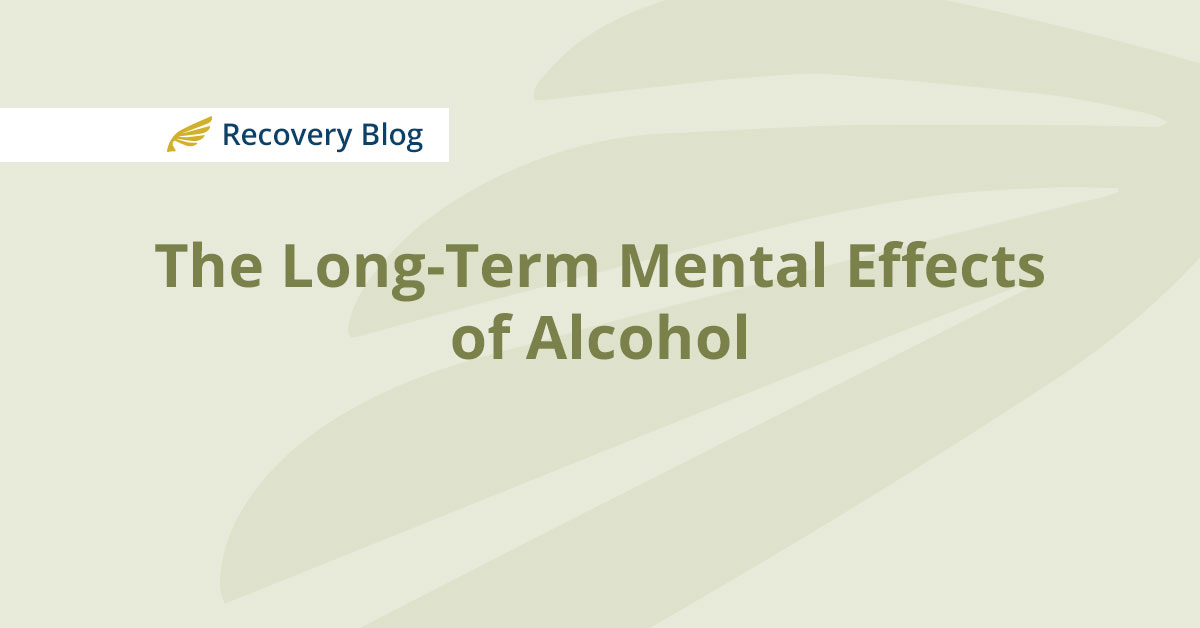How to Remain Alcohol Aware All Year Long
HOW TO REMAIN ALCOHOL AWARE ALL YEAR LONG
Alcohol awareness is all about being aware of our own...

Liver disease. Impaired coordination. Damage to the stomach lining. There are many effects of alcohol on the body that we know about and have perhaps felt ourselves at times. In addition to these physical effects, prolonged alcohol consumption wreaks havoc on our bodies, including many serious short and long-term effects on your brain and mental functions.
 Alcohol use often begins as a short-term way to relieve anxiety or depression. It depresses the central nervous system and numbs emotions.
Alcohol use often begins as a short-term way to relieve anxiety or depression. It depresses the central nervous system and numbs emotions.
Because of this, many people turn to alcohol for comfort as a coping mechanism when they are feeling a great deal of stress, pain, or hardship, such as going through a divorce or losing a job. Alcohol also helps some to escape the pain of physical or sexual abuse and other trauma.
But, alcohol also interferes with mood stability and promotes depression, and using alcohol as a coping mechanism can lead to substance abuse and addiction.
"While under stress and feeling anxious, people drink to find temporary relief. However, drinking leads to a rebound in anxiety levels, often making matters worse than before," according to PsychCentral.
Alcohol is also commonly used for temporary solace among those suffering from mental health conditions such as anxiety, depression, impulsiveness, or other mental illnesses. But if someone is on medication and drinking alcohol, it can be a very dangerous combination.
"Alcohol can also reveal or intensify our underlying feelings, such as evoking past memories of trauma or sparking any repressed feelings which are associated with painful events of the past," advises the Mental Health Foundation. "
These memories can be so powerful that they create overwhelming anxiety, depression or shame. Re-living these memories and dark feelings whilst under the influence of alcohol can pose a threat to personal safety as well as the safety of others."
Alcohol also gets in the way of good decision-making. It sometimes leads to promiscuous or other behaviors someone wouldn't do if they weren't under the influence. Poor decisions can lead to even more guilt, shame, or worry, damage relationships, and cause legal difficulties.
Over-consumption of alcohol long-term causes the death of brain cells, which can lead to brain disorders and a lowered level of mental or physical function. Long-term alcohol abuse also leads to dependence, tolerance, and addiction.
The Mental Health Foundation also states that "One of the main problems associated with using alcohol to deal with mental health problems is that regular consumption of alcohol changes the chemistry of the brain. It decreases the levels of the brain chemical serotonin - a key chemical in depression.
As a result of this depletion, a cyclical process begins where one drinks to relieve depression, which causes serotonin levels in the brain to be depleted, leading to one feeling even more depressed and thus necessitating even more alcohol to then medicate this depression."
The intoxicating effects of alcohol stem from its ability to interfere with the brain's communication pathways. Alcohol acts as a depressant, slowing down the central nervous system. This initial feeling of relaxation can be appealing, but it comes at a cost.
Chronic heavy drinking, defined by the National Institute on Alcohol Abuse and Alcoholism (NIAAA) as exceeding recommended daily limits (more than 1 drink per day for women and more than 2 drinks per day for men), disrupts the delicate balance of neurotransmitters in the brain.
These neurotransmitters, like dopamine and serotonin, play a crucial role in regulating mood, memory, and decision-making. When their levels are disrupted by excessive alcohol consumption, it can lead to a cascade of negative mental health effects.
Here's a closer look at some of the long-term mental effects associated with alcohol misuse:
Memory Loss and Cognitive Decline: Alcohol can damage the hippocampus, a vital area of the brain responsible for memory formation. Heavy drinkers may experience difficulty forming new memories, forgetfulness, and even problems with learning and concentration.
In severe cases, chronic alcohol dependence can contribute to dementia and Wernicke-Korsakoff syndrome, a condition characterized by memory loss, mental confusion, and difficulty learning new information.
Depression and Anxiety: The initial mood-elevating effects of alcohol are often followed by a rebound effect, leading to feelings of sadness, hopelessness, and anxiety.
Over time, excessive alcohol consumption can worsen existing depression or anxiety disorders, creating a vicious cycle where individuals drink to cope with negative emotions, which then exacerbates their mental health struggles.
Psychosis: In rare cases, heavy drinking can trigger psychotic episodes characterized by hallucinations and delusions. This is more likely to occur in individuals with a pre-existing vulnerability to psychosis.
Sleep Problems: While alcohol might initially make you feel drowsy, it disrupts the natural sleep cycle. This can lead to insomnia, fragmented sleep, and daytime fatigue.
Poor sleep quality further impairs cognitive function and contributes to mood swings, irritability, and difficulty concentrating.
Increased Risk of Suicidal Thoughts and Behaviors: Individuals struggling with alcohol dependence are at a higher risk for suicidal ideation and attempts.
Alcohol misuse can exacerbate feelings of hopelessness and isolation, making individuals more vulnerable to suicidal thoughts and behaviors.
The long-term mental effects of alcohol go beyond the individual. Excessive drinking can have a ripple effect, impacting relationships, work performance, and overall social well-being:
Social Problems: Heavy drinking can lead to strained relationships with family and friends. Impaired judgment and impulsive behavior under the influence can damage trust and create conflict. Social isolation and a sense of disconnection are common consequences of chronic alcohol misuse.
Work Performance: The mental fog and cognitive decline associated with excessive alcohol consumption can significantly impact your ability to perform well at work.
Difficulty concentrating, memory problems, and poor decision-making can hinder productivity and increase the risk of accidents or errors in judgment.
Financial Strain: Alcohol dependence can be a significant financial burden. The cost of alcohol itself, coupled with potential legal issues or lost productivity at work, can strain finances and create stress.
In conclusion, the long-term mental effects of alcohol are far-reaching and multifaceted, encompassing a spectrum of conditions ranging from alcohol use disorder to brain damage.
It is imperative to recognize the complexities of alcohol addiction and prioritize interventions aimed at prevention, early intervention, and comprehensive treatment.
By fostering awareness, promoting moderation, and supporting individuals on the path to recovery, we can mitigate the toll of alcohol misuse on mental health and pave the way toward a healthier, more resilient society.
While having a few drinks might seem like a good idea to relax or numb the pain you are going through, it can cause severe long-term problems physically and mentally. If you think you might be relying on alcohol to get by, reach out today. We will help you determine what your next step should be without any judgment or shame.
Alcohol awareness is all about being aware of our own...
We’re committed to breaking the stigma around mental illness and alcohol use disorder. Since...
The common effects of alcohol on the body are well documented, but what about the seemingly more...